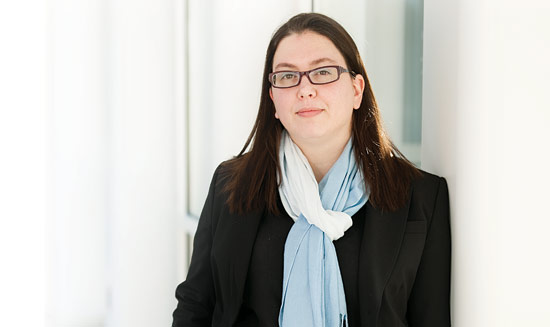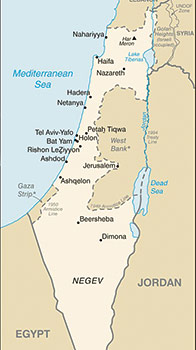
By kathryn marroneLerner College of Business & Economics

A driver leaves extra car lengths between his vehicle and the bus in front of him. A woman selects a table in the back of a restaurant to avoid a more public spot at the front. A teenager takes side streets to get to his destination, almost doubling his travel time to avoid taking main roads.
According to Michal Herzenstein, assistant professor of business administration, all of these individuals are acting with a common, if not illusive, goal — to save their lives.
Previously, Herzenstein, who specializes in marketing and consumer behavior, conducted experiments to examine the effect that frequent terror attacks have on consumers. She and Sharon Horsky, a colleague in Israel, focused on that country and the behavior of consumers during times of attacks by suicide bombers targeting buses, restaurants and markets.
The main research question they asked was, what does a fear of death, especially death arising from unpredictable causes, do to consumer choices? Overall, they found that frequent terrorism affects consumers differently than death in general because it is more conscious.
"When we think about our mortality, most people engage in what we call ‘distal defenses' — they try to increase their immortality figuratively," says Herzenstein. "For example, I am a researcher, so even if I die, my published articles will remain and be available to others to read, which somehow makes me immortal."
Herzenstein also says people may turn to increasing their status in society by purchasing luxury products as a way of becoming immortal.
"In areas of frequent terrorism, though, people think about death more often and as a result use proximal defenses — they try to find ways to avoid death," she explains.

With a grant from UD's Institute for Global Studies, Herzenstein and Horsky now are attempting to explain why terrorism makes people more death-conscious and why people engage in proximal defense.
"There is already a good deal of psychological research on a theory called learned helplessness — when people realize that their actions are unrelated to outcomes," says Herzenstein. "For example, no matter what we do or how healthy we seem, we may suffer a stroke or heart attack or get cancer. So we learn to live with a remote fear that someday we may get sick and die."
According to Herzenstein, where terrorism is different is that due to its frequency and the similarities between events (for example, the nature of suicide bombing events — the bomber is often in the middle of the bus or at the entrance to a restaurant), people perceive some control over whether they can get hurt and the extent to which they can get hurt. That is where those cautious citizens come in.
"The best strategy to preserve your life is to stay at home," Herzenstein says. "But if you want to go out, you will be more cautious. This is where people act under an illusion of control. They will go to inconspicuous places, stay far away from buses, take side streets instead of main roads."
So how does this relate to marketing?
"The more people experience that illusion of control, the more they are likely to purchase items for the house and the less likely they are to buy luxury products unrelated to control," she notes.
The managerial implications, then, for sellers of luxury and other safety-related items are high.
"Manufacturers of safety-related items could stand to benefit if they advertise during coverage of a terrorism event," says Herzenstein. "Sellers of luxury and other safety related items might also advertise a lot on CNN and other news channels because the frequency of news related to death is high, which will prompt people to prefer those products."
Herzenstein emphasized, though, that such strategies would not be encouraged nor ethical of marketers.
"It is just interesting to examine how the field of marketing has evolved, and how terror-management theory comes into play," she says. "Ultimately, we hope to expand our research not only to explain why certain products sell, but to help the consumer make the best choices."
Herzenstein joined the UD faculty in September 2006. She earned a master's degree in applied economics and a doctorate in marketing, both from the University of Rochester's Simon Graduate School of Business, and bachelor's and master's degrees from the University of Tel Aviv.